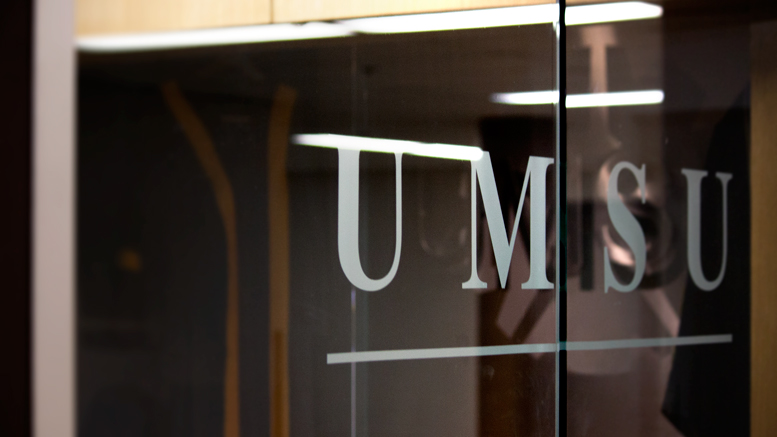At its Feb. 11 meeting, the University of Manitoba Students’ Union (UMSU) council passed a motion requiring all student associations to participate in a consent culture training program for their elected officials.
The motion was drafted by Alana Robert, UMSU womyn’s representative and chair of the Justice for Women student group, and Rebecca Kunzman, vice-president advocacy for UMSU.
The Manitoban reported on Feb. 10 that Robert and Kunzman were disappointed by what they perceived as a lack of participation on the part of several student councils – namely the U of M Engineering Society (UMES) and the Commerce Students’ Association (CSA).
The motion requires all faculty-specific councils and student associations recognized by UMSU to participate in consent culture workshops put on by UMSU, the Justice for Women group, or the bystander intervention training program put on by the U of M.
Robert expressed enthusiasm about the motion passing unanimously at UMSU council, emphasizing that sexual violence is an ongoing issue on Canadian campuses.
“I am so excited that UMSU has joined Justice for Women’s initiatives, extending the reach of our campaigns and programming, in a truly proactive step to combat sexual violence and rape culture at the University of Manitoba,” Robert said.
According to Robert, Justice for Women has had overwhelmingly positive feedback for its consent culture workshops, which focus on educating students on definitions of sexual assault and violence, gender stereotypes, and the meaning of consent in contexts of power imbalance.
“This is an unprecedented step amongst universities across Canada – where a student initiative, being Justice for Women, has partnered with a students’ union to extend comprehensive training, dialogue, and action to reach across an entire university,” Robert said.
According to Kunzman, the motion was the first step in a two-step process. It ensured that council members agreed to the idea that these workshops should be mandated. This motion is active now until April 30 of next year as a standing resolution.
Kunzman told the Manitoban that the next step will be to pass a policy to go into UMSU’s governance and operations manual. This will ensure that the sexual assault training program can remain mandated through the years by being embedded in the institutional structure of UMSU, she said.
A draft of this policy was given in a report to councillors during the meeting before they voted on the motion.
The report, titled “UMSU’s Safe Space and Socials Program,” describes the background of the program, UMSU’s role, the workshops, the experiences, and the difficulties that have come up this year. It also includes the policy proposal, the motion to council, and a draft of the policy.
“Now we can move forward with the knowledge in hand that everyone is on board with the idea and the principle that this should be required,” Kunzman said.
But not all students are enthusiastic about making the workshops mandatory for student councils.
Noah Yagi, president of the CSA, one of the student associations that was called out by Robert for not adequately participating in the workshops, expressed support for the motion, calling it a “great initiative.”
However, he also expressed concern about what a mandatory policy would look like, and reservations on the consequences of mandating the program.
“If they want to make this something that is received from all the student groups, I’m not sure if this approach is going to work for all the student organizing groups, in the sense that some are a lot larger than others,” Yagi said.
“With making it mandatory for general council members to attend, I’m worried that might cause more harm than good.”
The policy
In the report given to councillors, the draft policy outlines the timeline that student councils must follow when implementing the consent culture workshops.
According to Kunzman, the target date for student groups to receive this training will be by the end of the summer, so they will be equipped going into the year, where they will be participating in Frosh events that take place during the first weeks of school.
Moreover, the policy stipulates that students organizing events where food and alcohol are served must complete consent culture training in order to receive the relevant permits to hold the event on campus.
The draft policy also outlines the steps available to UMSU if student councils do not comply or miss the deadlines to obtain the training.
The student association would receive reminders up until a certain date, followed by meetings and follow-ups. After that, the UMSU vice-president advocacy will give a final notice and write a report to the UMSU council articulating the executive’s position on the matter. From there, it would go to UMSU council as the final authoritative body to decide if they will sanction the student association by withholding fees.
“It strikes a balance between trying to be flexible with the councils, but then also ensuring that we actually have some mechanisms in place to make sure that it does get done. Unless you make it a priority, the ball will get dropped,” Kunzman said.


